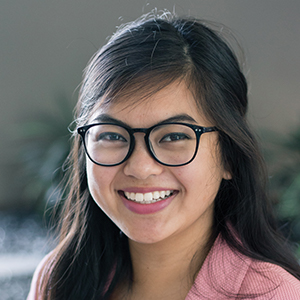Honoring undergrads who promote diversity
The American Society for Biochemistry and Molecular Biology’s Minority Affairs Committee created the Marion B. Sewer Distinguished Scholarship for Undergraduates in 2016 to support students who excel academically and are dedicated to enhancing diversity in science. The award was named to honor Marion B. Sewer, who was an ASBMB member and past chair of the Minority Affairs Committee when she died in January 2016 at age 43.
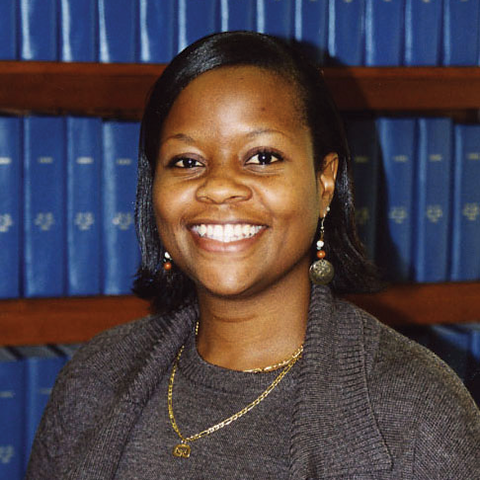
As well as being an international authority on the regulation of cytochrome P450 enzymes and on the biosynthesis of steroid hormones, Sewer was a principal investigator on projects devoted to increasing participation among underrepresented minorities and furthering student training. Within the ASBMB, she organized the MAC’s Interactive Mentoring Activities for Grantsmanship Enhancement workshop program for postdoctoral fellows and early-career scientists, known as IMAGE, which addresses the disparity in underrepresented minority scientists’ ability to secure federal research grants. She also wrote about issues that URM scientists face, such as impostor syndrome. Sewer’s work reflected her commitment to diversity and inclusivity of underrepresented minorities in science, technology, engineering and math.
Each year, the MAC and the Student Chapters Steering Committee select up to five undergraduate students to receive up to $2,000 toward tuition. Here, the latest five recipients of the Sewer scholarship describe their personal goals and how they promote diversity. Their statements have been edited.
2019 Sewer scholarship recipients
Olivia Drake, Juniata College
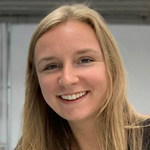
I plan to obtain an M.D.-Ph.D. in neuroscience, and I hope to focus either on the neural networks involved in drug addiction or on treatment targets and drug development for psychiatric illnesses. I am particularly interested in the genetic aspects of these disorders, and I hope ultimately to contribute to more effective prevention of and treatment for psychiatric disorders. I hope to serve my community as a clinical researcher as well as a mentor and role model for students from disadvantaged backgrounds.
Shellaina Gordon, Northeastern University
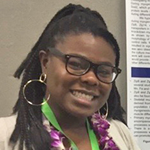
After graduation, I hope to pursue an M.D.-Ph.D. where I can be at the crossroads of science, linking basic research with the clinic. I believe translational medicine is essential to promoting health and wellness. I hope to use my degree to study and treat difficult-to-treat autoimmune diseases and cancers. Throughout my career, I plan to teach and mentor undergraduate students, as this was a crucial time for my development. I also plan to work in academic medicine and eventually work toward change on a large scale by working with the National Institutes of Health or the Centers for Disease Control and Prevention.
Ifechukwu Okeke, University of California, Berkeley
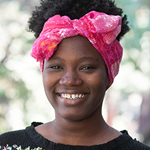
After graduation from UC Berkeley, I hope to pursue a combined M.D.-Ph.D. degree. Currently, there are lapses in the way medicine and basic science research are woven together to provide care. These lapses show up in the continuation of negative health outcomes for racial and other minorities. As a physician, I will practice medicine in a way that reduces the occurrence of racist and othering practices toward patients of color.
Historically, many disenfranchised populations have been hurt by scientific practices and consequently alienated, with many skeptical of the legitimacy of science as a tool to improve their lives. I hope to help my patients understand the importance of basic science research and how beneficial it can be, especially rooted in community partnerships and done by scientists who understand what it means to value knowledge other than that produced within the academy. As a scientist in the lab, I will do science through a racial justice lens and make contributions to shift the apolitical mainstream STEM discourse toward true equity encompassing a multitude of marginalized identities.
As one of my mentors says, “The professional is personal,” so my life experiences will remain an unwavering motivation throughout my profession.
Diego Rodriguez, Oregon State University
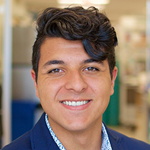
Selena Vanapruks, Colgate University
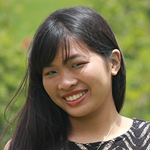
After graduating with my B.A. in molecular biology, I will pursue a master’s degree in genetic counseling. I am passionate about genetic counseling because it offers a unique balance of empathy and problem-solving as well as a wide variety of career options. Additionally, I believe that I can face the challenge of fixing the current inequities in the field. According to the National Society of Genetic Counselors, 90% of genetic counselors identify as white or Caucasian. Further, genetic testing primarily has been done on, and thus is most helpful to, those of European descent. As such, genetics and genetic counseling have a long way to go before they are equally accessible to people of color — and I intend to help lead the way.
About the Sewer scholarship
The Marion B. Sewer Distinguished Scholarship for Undergraduates provides up to $2,000 toward tuition to students who demonstrate an interest in the fields of biochemistry and molecular biology and who enhance the diversity of science.
All undergraduate members of the American Society for Biochemistry and Molecular Biology are eligible to apply for the scholarship, which aims to support students whose social, educational or economic background adds to the diversity of the biomedical workforce or who show commitment to enhancing academic success of underrepresented students.
Applicants must describe how they uphold diversity on their campus or in the science community, how the scholarship will help their career goals, and any hardships they have experienced while pursuing their own educations.
The deadline to apply is June 1.
Enjoy reading ASBMB Today?
Become a member to receive the print edition four times a year and the digital edition monthly.
Learn moreFeatured jobs
from the ASBMB career center
Get the latest from ASBMB Today
Enter your email address, and we’ll send you a weekly email with recent articles, interviews and more.
Latest in People
People highlights or most popular articles
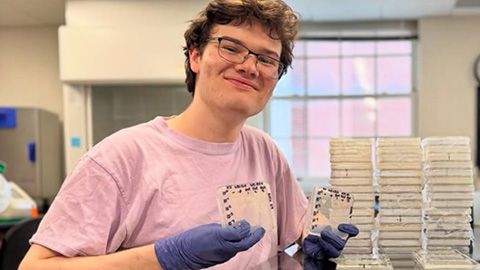
Summer research spotlight
The 2025 Undergraduate Research Award recipients share results and insights from their lab experiences.
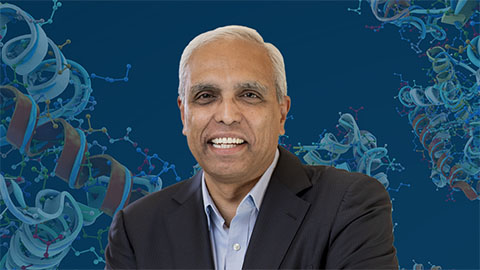
Pappu wins Provost Research Excellence Award
He was recognized by Washington University for his exemplary research on intrinsically disordered proteins.
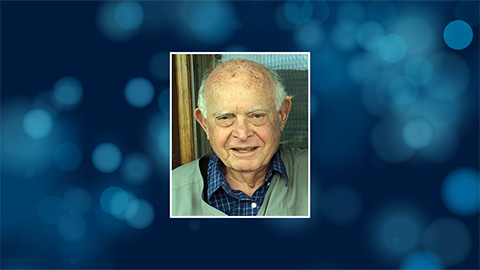
In memoriam: Rodney E. Harrington
He helped clarify how chromatin’s physical properties and DNA structure shift during interactions with proteins that control gene expression and was an ASBMB member for 43 years.

Redefining lipid biology from droplets to ferroptosis
James Olzmann will receive the ASBMB Avanti Award in Lipids at the ASBMB Annual Meeting, March 7–10, just outside of Washington, D.C.

Creating change in biochemistry education
Pamela Mertz will receive the ASBMB William C. Rose Award for Exemplary Contributions to Education at the ASBMB Annual Meeting, March 7-10 in Washington, D.C.
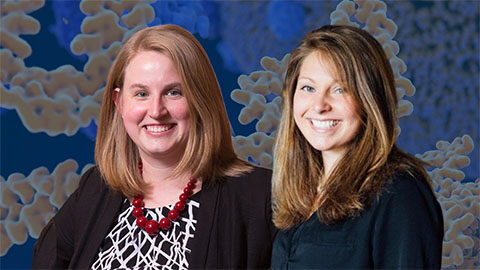
Amacher, Pollock named Henry Dreyfus scholars
They were recognized for their outstanding research scholarship and a deep commitment to undergraduate education and each received $75,000 to fund their research.

